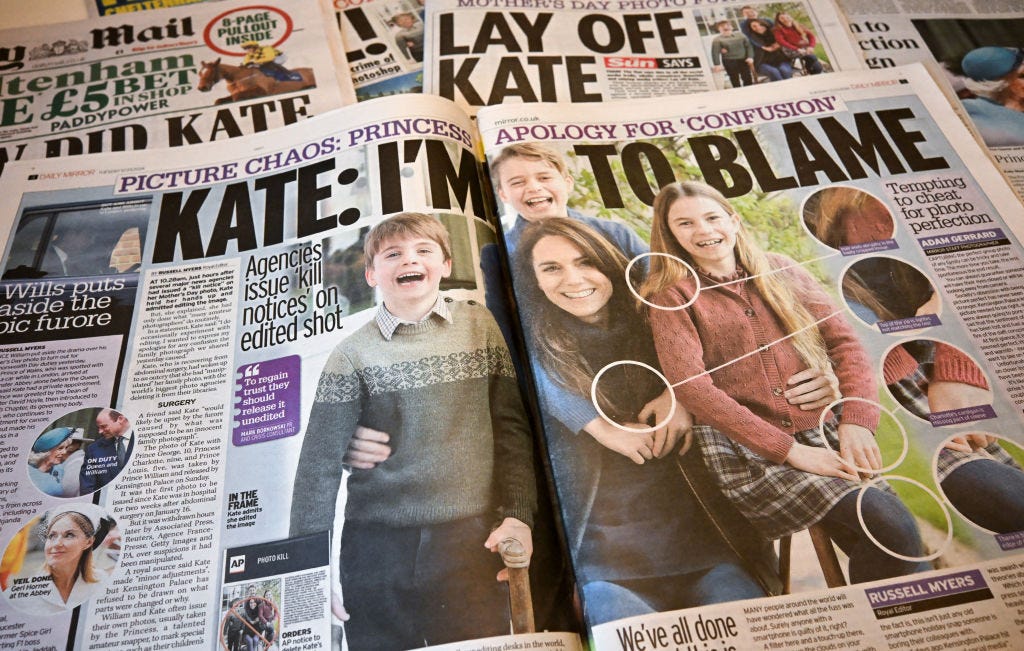We're all conspiracy theorists now
Charlie Warzel on what the very online hunt for Kate Middleton says about you
Sometime this January, Catherine, Princess of Wales — the internet personality and potential future queen of England, better known to casual observers and fans as just plain “Kate Middleton” — slipped from public view, and the myriad fans and followers of the royal family’s every move began to worry. A lot.
As the weeks slipped by, the official explanation (that she was home recovering after surgery) failed to satisfy anyone for long, and ignited a frenzy of tabloid and internet speculation about what might have happened. Things only got worse when Middleton herself shared a family photo that appeared to have been extensively Photoshopped, and what’s emerged is a full-blown society of speculation about cover-ups and what might really have happened to Kate.
Now, we’re not in the business of keeping tabs on the Windsors, but reading about the Middleton affair amounts to watching conspiracy theory being born in real time, but one fueled by valid questions: in the absence of good information, thousands of everyday folks with interest in the celebrities around the British throne have filled in the gaps with an ever-expanding web of stories.
Though we are not royal watchers, we are very interested in what the Middleton affair reveals about us — and about information and lies today. So we reached out to Charlie Warzel, a staff writer at The Atlantic and a great authority on the evolving culture of the internet, who has written about this explosion. We talked about what it means that conspiracy has become the way everyone makes sense of culture now, and what that says about community, society, and politics in our strange, disconnected age.
“Conspiracy culture,” he told us, “is just kind of the way we talk on the internet now.”
Why does this story about Kate Middleton’s disappearance from the public eye matter to anybody?
I think the primary reason why I was drawn to it is that it’s increasingly rare for things to break through into saturation. There are certain things that the internet spotlights and then accelerates into a big pop cultural narrative. And so I wanted to do a little bit of forensics into why.
It’s asking, “What color is the dress?”
And so that was the genesis of the first story I did on this. I was just trying to piece together, “What are people doing here? Why are they sharing these stories? Why are they creating these conspiratorial memes?”
And how we're talking about this was very fascinating to me. It’s lighthearted winking, but conspiracy theorizing is almost just the way that we talk about celebrities now, right? We've taken the patina of Infowars and kind of cheekily applied it to the way that we discuss people in general. And that is obviously a callback to tabloid culture and The National Enquirer.
So is this amateur tabloid culture?
Conspiracy culture is just kind of the way we talk on the internet now.




